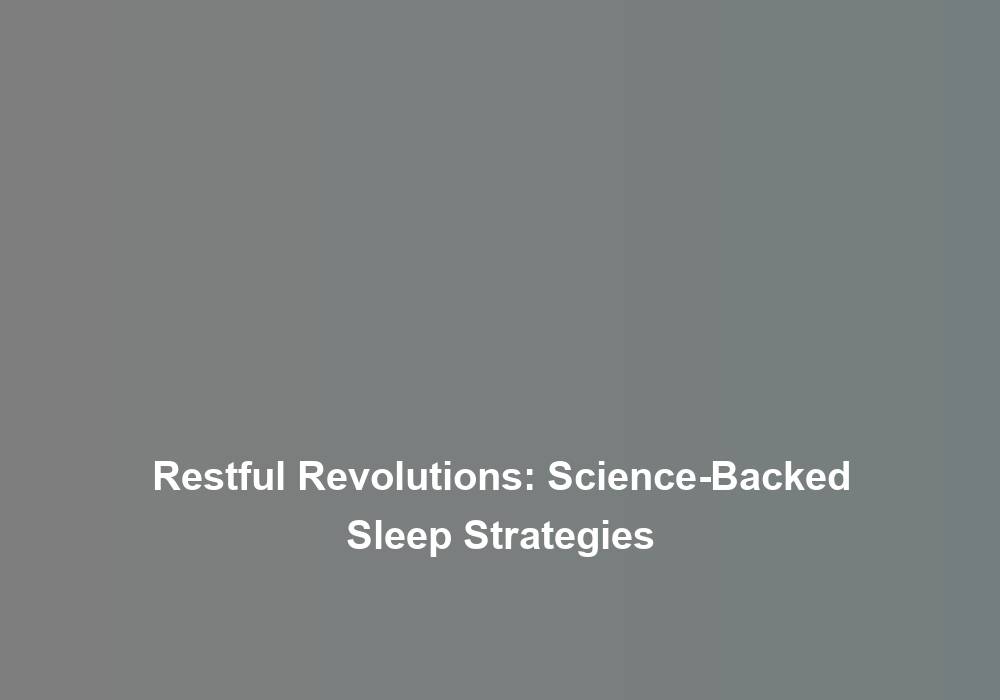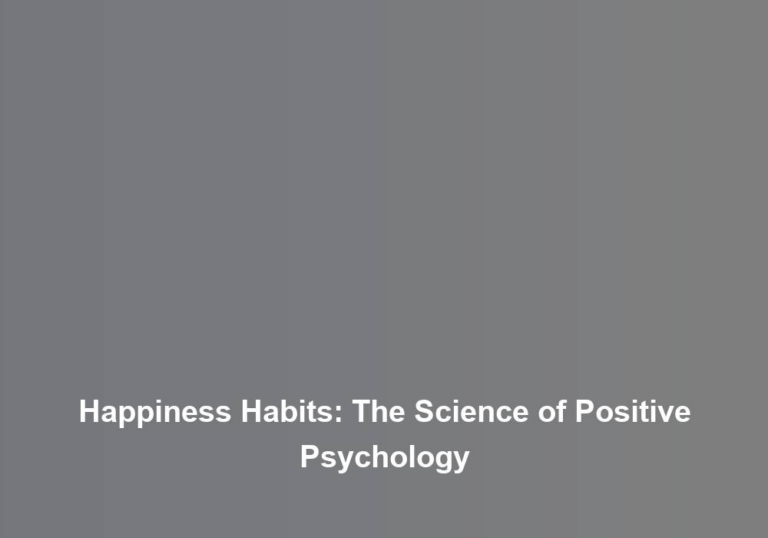Restful Revolutions: Science-Backed Sleep Strategies
Tossing and turning through the night, struggling to get a good nightG??s sleep? YouG??re not alone. But what if there were science-backed strategies that could revolutionize the way you approach sleep? From understanding your sleep cycles to optimizing your sleep environment and harnessing the power of technology, there are innovative techniques that could transform the way you rest. But thatG??s just the beginning. ThereG??s so much more to discover about how you can revolutionize your sleep and wake up feeling more refreshed and rejuvenated.
Understanding Sleep Cycles
Understanding your sleep cycles is essential for optimizing your rest and overall well-being. Throughout the night, your brain transitions through different sleep stages, each characterized by distinct patterns of brain activity. These stages are crucial for your body to repair and rejuvenate, and understanding them can help you make the most of your sleep.
Your circadian rhythm, also known as your internal body clock, plays a significant role in regulating your sleep patterns. This rhythm is influenced by external factors such as light and temperature, and it determines the times when you feel most awake and when you naturally feel drowsy. By aligning your sleep schedule with your circadian rhythm, you can enhance the quality of your sleep and wake up feeling more refreshed.
During the night, your brain cycles through different sleep stages, including light sleep, deep sleep, and REM (rapid eye movement) sleep. Each stage is linked to specific brainwave patterns and serves distinct purposes, such as memory consolidation, hormone regulation, and cognitive restoration. By understanding these stages, you can tailor your bedtime routine and environment to promote a smoother transition through each phase, leading to a more restorative nightG??s sleep.
Optimizing Sleep Environment
To optimize your sleep environment, consider minimizing noise and light exposure to create a calming atmosphere conducive to rest. Your bedroom should be a sanctuary for sleep, free from disturbances that can disrupt your rest. Here are some science-backed strategies to help you create an ideal sleep environment:
-
Control Light Exposure: Make use of blackout curtains or an eye mask to block out any light that may seep into your bedroom. Even small amounts of light can interfere with your bodyG??s natural sleep-wake cycle, so creating a dark environment is crucial for quality rest.
-
Invest in White Noise: Consider using a white noise machine or a fan to drown out any disruptive sounds that could disturb your sleep. White noise can help mask other noises, creating a consistent and soothing backdrop for sleep.
-
Declutter Your Space: Keep your bedroom tidy and free from clutter. A clean and organized space can help reduce stress and promote a sense of calm, allowing you to unwind more effectively before bed.
-
Choose Comfortable Bedding: Your mattress, pillows, and bedding play a significant role in creating a comfortable sleep environment. Select bedding that feels comfortable to you and supports a restful nightG??s sleep.
Harnessing the Power of Technology
Consider incorporating sleep-tracking apps or devices into your routine to gain insight into your sleep patterns and make informed adjustments for better rest. Wearable devices, such as smartwatches or sleep-tracking rings, are designed to monitor your sleep stages, heart rate, and movement throughout the night. These devices provide valuable data that can help you understand the quality of your sleep and identify potential areas for improvement. By utilizing wearable technology, you can actively engage in monitoring your sleep, fostering a sense of control and empowerment over your rest.
In addition to wearable devices, digital interventions in the form of sleep-tracking apps offer a convenient way to analyze your sleep behaviors. These apps often provide personalized recommendations based on your sleep data, guiding you towards healthier sleep habits. They can also serve as gentle reminders for bedtime routines and relaxation techniques, nurturing a supportive and nurturing environment for your sleep journey.
Mind-Body Techniques for Better Sleep
Incorporating mind-body techniques can further enhance your sleep quality, complementing the insights gained from sleep-tracking apps and devices to promote a holistic approach to rest. By integrating relaxation techniques and breathing exercises into your bedtime routine, you can cultivate a sense of calm and improve your overall sleep experience.
Here are four effective mind-body techniques to help you achieve better sleep:
-
Progressive Muscle Relaxation: This involves systematically tensing and then releasing each muscle group in your body, promoting physical relaxation and reducing stress and tension.
-
Deep Breathing Exercises: Practicing deep, diaphragmatic breathing can help calm the mind and activate the bodyG??s relaxation response, making it easier to fall asleep and stay asleep.
-
Mindfulness Meditation: Engaging in mindfulness meditation before bed can help quiet racing thoughts and promote a state of relaxation, allowing for a smoother transition into sleep.
-
Yoga and Stretching: Gentle yoga poses and stretching exercises can help release physical tension, improve circulation, and signal to the body that itG??s time to wind down for sleep.
Incorporating these mind-body techniques into your nightly routine can create a soothing environment for better sleep, promoting a sense of well-being and tranquility that extends throughout the night.
Sleep Nutrition and Hydration
Improving your sleep quality can be influenced by your nutrition and hydration choices. ItG??s essential to pay attention to meal timing and hydration balance to optimize your sleep. Meal timing plays a crucial role in supporting good sleep. Eating heavy or large meals close to bedtime can lead to discomfort and indigestion, making it harder to fall asleep. Aim to have your last meal at least 2-3 hours before bedtime to allow for proper digestion. Additionally, consuming a light snack that includes complex carbohydrates and protein, like a small amount of yogurt or a banana, can help stabilize blood sugar levels and promote better sleep.
Hydration balance is equally important for quality sleep. Dehydration can lead to discomfort and disrupt your sleep. However, consuming large amounts of liquids right before bed can result in frequent trips to the bathroom during the night, disrupting your sleep cycle. ItG??s best to maintain a consistent level of hydration throughout the day, ensuring that you consume an adequate amount of fluids, primarily water, while tapering off in the evening to minimize the need for bathroom visits during the night.
Conclusion
Now that youG??ve armed yourself with the science-backed strategies for better sleep, itG??s time to put them into action and watch your sleep quality blossom like a garden in full bloom. Embrace the restful revolutions and let them carry you into a peaceful slumber each night, like a gentle breeze guiding a ship to safe harbor. With these tools at your disposal, you have the power to transform your sleep and awaken feeling refreshed and rejuvenated. Sweet dreams await!







